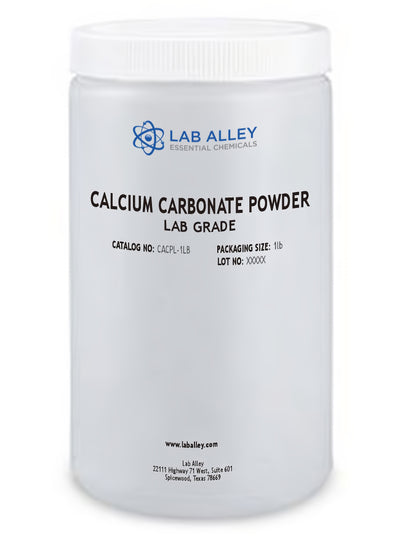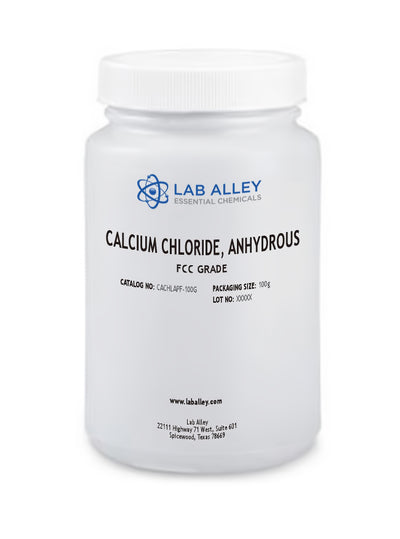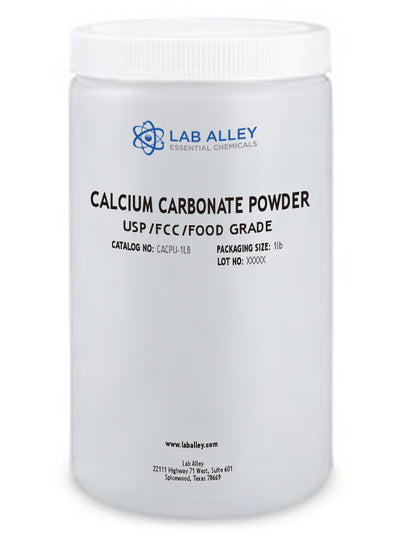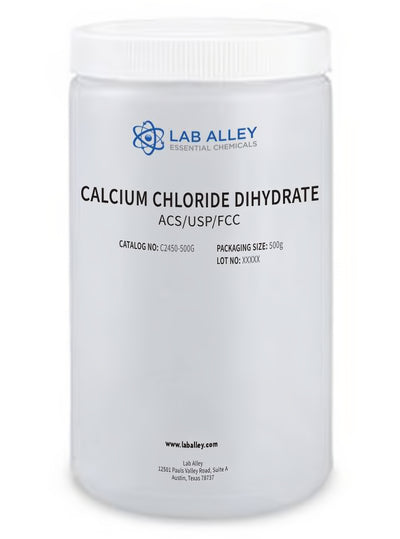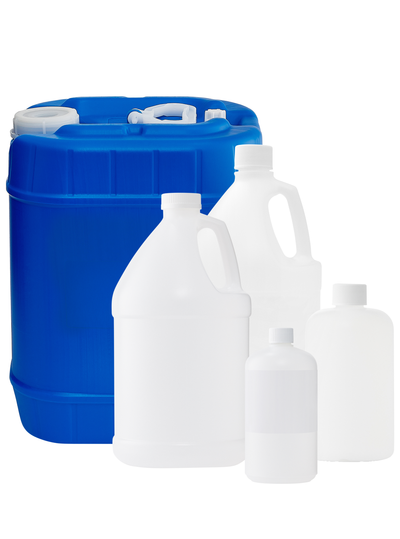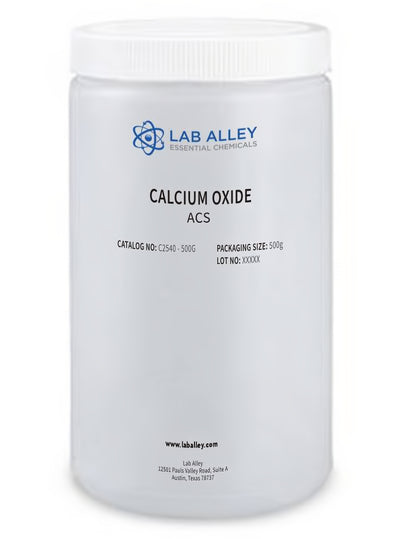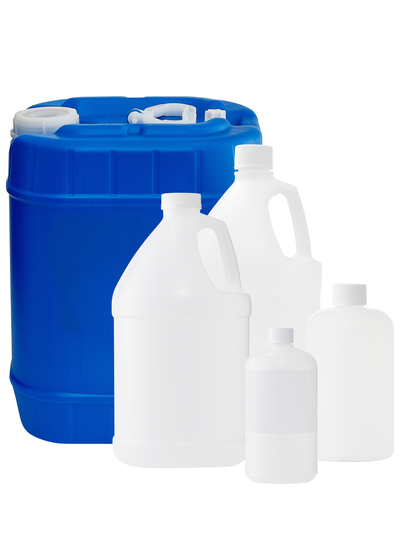
Business Support
Calcium Carbonate Precipitated, ACS/USP Grade


Business Support
Description
About Calcium Carbonate Precipitated, ACS/USP Grade
Calcium Carbonate, a whitish or colorless powder, is odorless and is largely water-insoluble at ambient conditions. The mining of limestone leads to the production of pure Calcium Carbonate that can be used as a dry powder or in slurry form.
Any chemical that fulfils the ACS (American Chemical Society) purity criteria is referred to as the ACS grade reagent. ACS Grade reagents can be used in high quality research labs for reliable, consistent and repetitive results. Due to its high purity, Lab Alley’s Calcium Carbonate, ACS/USP Grade is also certified by the United States Pharmacopeia (USP). In the United States of America (USA), Lab Alley is selling its high-quality Calcium Carbonate Precipitated, ACS/USP Grade online at laballey.com.
COMMON USES AND APPLICATIONS
- Reagent
- pH balancing agent
INDUSTRIES
- Food processing
- Bakery items
PRODUCT INFORMATION
Customer Reviews and Q&A
Safety and Shipping
Please contact us to request a Safety Data Sheet (SDS) and Certificate of Analysis (COA) for Calcium Carbonate Powder ACS/ USP.
Business Support
Built for Business.
At Lab Alley, we simplify procurement with custom quotes, credit applications, tax exemptions, and fulfillment support, ensuring on-budget, on-time delivery - your success is our priority.
Apply for Credit
A Lab Alley credit account streamlines purchasing for your business. Our Customer Success Team is available to help you through every step of the process.
Request a Custom Quote
Get a fast, customized quote tailored to your specific needs. Our team ensures accurate pricing and availability to help streamline your purchasing process.

Additional Business Resources
Lab Alley provides access to essential certifications, documents, and other resources to support your business.

Create a Lab Alley Account

RECEIVE exclusive offers, promotions, and discounts on chemicals.

Always have the product you need, when you need it with our AUTOSHIP program.








